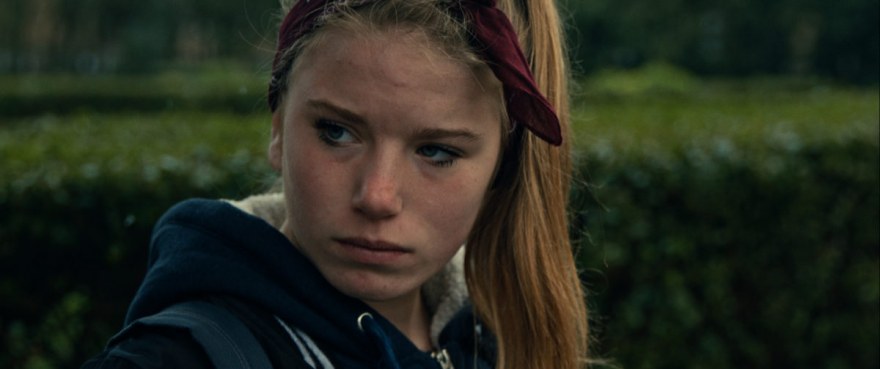Dinner with Chasse royale (Royal Hunt)
Interview with Lise Akoka and Romane Gueret, directors of Chasse royale (Royal Hunt)
Why were you interested in this period of adolescence?
We met while working on an open casting call for a feature-length film where we were looking for young teens who had no experience on set. Chasse Royale is the result of the encounters we made during this casting call. Our initial impulse was to write for all these teens that we met and who impressed us and touched us so much, regardless of age. It’s just that we had a few favorites among the personalities we encountered. This does not detract from the fact that this pivotal age touches us greatly, and to observe this moment where everything is changing, yet to be developed, where personality is born and refined, seems eminently poetic and cinematographic to us.
Do you think rebellion is necessary in order to gain autonomy?
Not always, no, but it often arises from this. Rebellion is sometimes a beautiful means of expression.
How did you come up with the idea to audition for actors in a middle school? Were you inspired by a previous film shoot? Did you have a similar experience in shooting Chasse royale?
Chasse royale was mostly inspired by our experience in holding auditions with children. We wanted to address what we observed when conducting this peculiar practice of the open casting call. On one hand, the wonderful experience that can be for a child, the perspectives that it can open, and on the other hand, the projections, the disappointments.
How did you work with Angélique’s social and family environments. Could you have made Chasse royale in a bourgeois environment?
We worked in immersion. Over a year and a half of return trips between Paris and Valenciennes, lots of auditions in many different places, encounters: with teachers, neighbors, the personnel who support the neighborhood, those working in the housing units; we fed off of their energy, the atmosphere and the decor. We wouldn’t have been able to shoot Chasse royale in a bourgeois setting because that would have made it an entirely different film that wouldn’t address the same issues.
Chasse royale questions human relationships in all their forms. What interested you the most: our view of ourselves, the looks of others, or our view of others?
Indeed, Chasse royale addresses the reciprocal projection of one social milieu on another. There is the viewpoint of the casting director that represents the world of cinema, and there is the viewpoint of the children. It leads us to question our profession, and the effect that cinema has when it abruptly invites itself into the lives of these teens through these open casting calls. Chasse royale is a fictional short film, we are its directors, so it is our point of view on the themes that interest us and that we decided to bring to light. The three viewpoints you mention are intertwined and difficult to isolate from each other in Chasse royale.
In Chasse royale, you also address the transposition and the feeling of liberation that a projection allows, the “role plays” that are or aren’t authorized…. do you think that “role play” allows us to more effectively grasp complex realities?
Yes, we think that well-structured gameplay can have a cathartic and liberating effect.
Any cinematic coups de cœur in the past year you’d like to tell us about?
After Love by Joachim Lafosse, Willy 1er by Ludovic Boukherma, Zoran Boukherma, Marielle Gautier and Hugo P. Thomas and Elle by Paul Verhoeven.
If you’ve already been to Clermont-Ferrand, could you share with us an anecdote from the festival? If not, what are your expectations for this year?
We’ve never been to the Clermont-Ferrand festival. We are excited and proud to be part of it this year. We really want to see as many short films as possible and to take advantage of the many encounters this festival offers.
Are any other screenings scheduled?
It has been chosen for official competition at the Premiers Plans Festival in Angers.
Chasse royale is being shown in National Competition F10.








